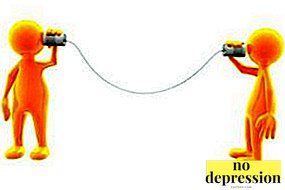The concept of coaching came into our life closely, representing an opportunity for development through cooperation, not learning. Together with him, words such as "coach" and "coach" appeared, sowing confusion among the townsfolk. What do these names mean? Is it possible to say that a coach is the same coach? Or are his duties different? When are they looking for coaches? How to find professionals of this business? How difficult is it to become a coach? We will try to answer these difficult questions.
Who is a coach?
A coach is a consultant who individually helps to solve professional or personal tasks. A coach is a coach who does his job as a consultant, not a coach. Thus, his work differs from the group methods of the coach, because it is associated with close individual communication.
How closely a coach interacts with his ward brings him closer to the role of mentor. But the most important difference is the method of the work of the coach. If a mentor should transfer his life experience or wisdom, then the coach, on the contrary, has no right to express his opinion, to condemn the interlocutor. His main task is to activate the internal reserves of the client, helping him to reveal his own potential.
Coach's working methods
The dialogue between the coach and the client is the intricacies of all possible disciplines related to a person's psychology, understanding of his behavior and thinking. A professional coach must assist a person in no way interfering in his decision making. And it is really difficult, because the client regularly strives to commit stupidity and spoil everything. Figuratively, the work of a coach can be compared with a magic briefcase, in which there is any object from a screwdriver to a laser sword, but the coach cannot use them.
He has the right to only offer a tool., in the hope that this device will be used for its intended purpose. In the process of dialogue, the coach needs to communicate in such a way that the person answers his own questions. But if, nevertheless, the client stumbles, the coach must “catch” him, not letting him fall.
An important task of a coach is regular removal of the ward from the “comfort zone”. Magic "kick", which makes you think and do something. The skill is to “kick” significantly, but to avoid “grave bodily”. After all, it is possible to transfer a person, having beaten off his desire to further development. And this is a complete failure for the coach, as his task is progress.
How to find a coach?
Since coaches do not sit in state institutions, perceived by the official doctrine as charlatans, no one controls their work. Finding a professional is difficult, but realistic. Especially in times of Internet development. The global community of users of social networks has already become a mass media outlet. It responds much faster to all fashion trends, helping to spread the news. Coaches are not an exception, which thousands of users write about, recommending or, on the contrary, criticizing their work. So, their feedback can be one of the most important landmarks in the search for a coach.
The second indicator is international certificates. One of the world's most famous coaching centers is the International Coaching Federation (ICF). This organization is engaged in teaching coaching, as well as its development and popularization. A person trained in this structure and received the necessary documents can be considered a competent coach.
How to become a coach?
Since a coach is a specialist like a doctor or a teacher, their training system requires considerable effort on the part of the applicant. The International Coaching Federation has introduced a tough three-stage training system for its followers, including coaches.
- Associate Certified Coach (ACC) - includes 60 hours of training, as well as 100 hours of practice;
- Professional Certified Coach (PCC) - assigned after 125 training hours, followed by 500 hours of practice;
- Certified Master Coach (MCC) - issued after 200 hours of study and 2500 hours of practice.
To achieve mastery in coaching, it is necessary to give many years of hard training and self-development to this profession.
What skills do coaches need?
In addition to vocational education and training, a coach should be able to communicate with people, be characterized by developed empathy and stress resistance. Knowledge of human psychology will be useful. That is why psychologists, educators and doctors achieve success in this profession. But not only these specialties allow you to become a good coach.
The person who chooses this specialization should be well versed in the issues that are addressed to him. It is one thing to help a teenager in search of a girl or friends, and another to assist the billionaire in the development of a transcontinental corporation. Although the principles of work in either case will not be very different. Philanthropy, customer focus and magic "kicks" has not been canceled.
Coach is useful in solving a number of issues. It helps, both in improving personal life, and in the prosperity of the business or moving up the career ladder. Coaching methods work differently from the arsenal of mentors and coaches. First of all, this is due to the feature of coaches.
They do not teach and do not prompt, but skillfully guide a person with the help of his own knowledge and skills. In addition, coaches work only individually, without any groups or audiences. They can be considered one of the highest degrees of coaching knowledge. Accordingly, such experts are not so common.



